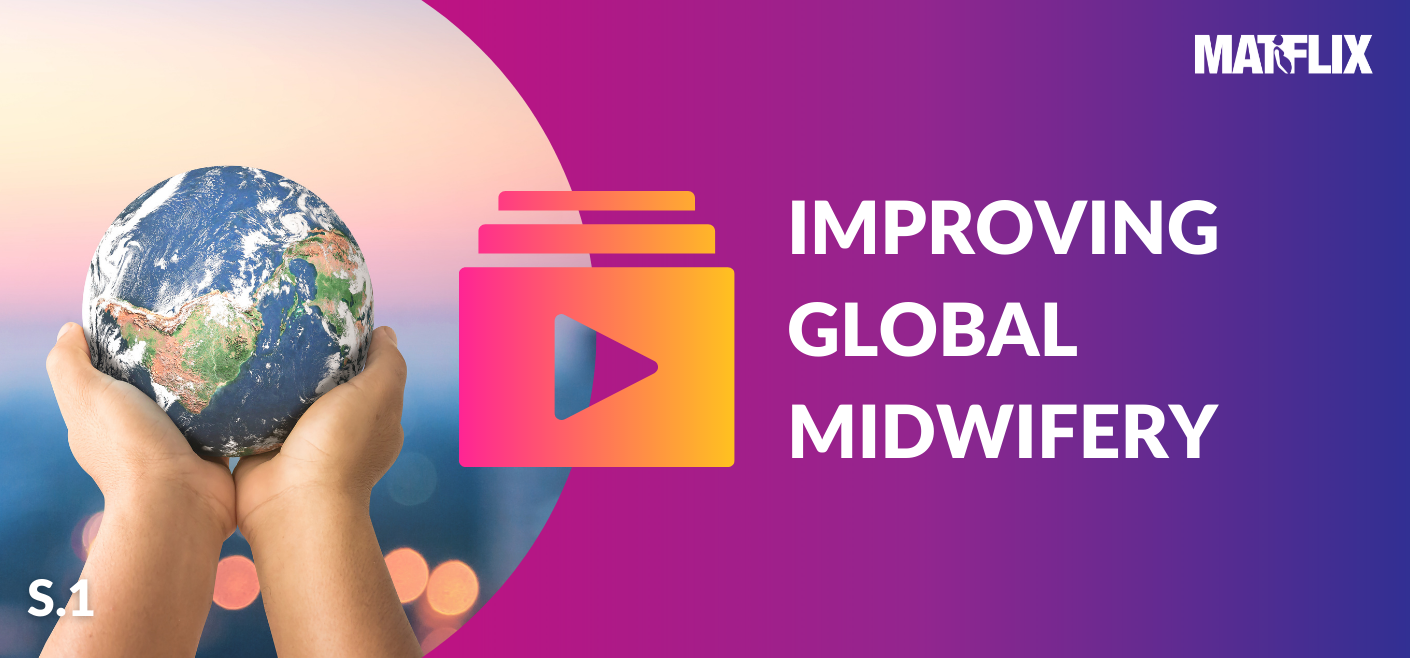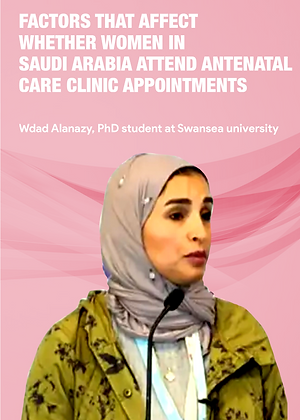Factors that affect whether Women in Saudi Arabia attend Antenatal Care Clinic Appointments
Wdad Alanazy, a PhD student at Swansea university presents research revealing that maternal mortality rates for women in Saudi are high and questions professionals and women as to why they are not attending antenatal care. Wdad presents barriers around accessibility, the attitudes and facilities of carers, employment issues for the women, and views of families. She concludes that strategies for antenatal provision and education should be supported at the policy level as well as educating women to choose antenatal care.
Wdad Alanazy, PhD Student at Swansea University
This learning module can be used towards CPD for revalidation with the Nursing and Midwifery Council (NMC) in the UK, and equivalent bodies in other jurisdictions.

Improving care in global settings Resources
Boerma T et al 2018 Global epidemiology of use of and disparities in caesarean sections The Lancet 392: 10155 1341-1348
International Confederation of Midwives 2019 Essential Competencies for Midwifery Practice https://www.internationalmidwives.org/assets/files/general-files/2019/03/icm-competencies-en-screens.pdf
RCM Global Projects
https://www.rcm.org.uk/promoting/global/
Save the Children 2015 State of the World’s Mothers : The Urban Disadvantage https://www.savethechildren.net/sites/default/files/libraries/SOWM_EXECUTIVE_SUMMARY.pdf
The Lancet Maternal Health Series
http://www.maternalhealthseries.org/
United Nations Population Fund 2019 Unfinished Business https://www.unfpa.org/swop-2019
United Nations Sustainable Development Goals https://sustainabledevelopment.un.org/?menu=1300
WHO 2018 Maternal Mortality
https://www.who.int/news-room/fact-sheets/detail/maternal-mortality
WHO 2015 Statement on Caesarean section rates https://apps.who.int/iris/bitstream/handle/10665/161442/WHO_RHR_15.02_eng.pdf;jsessionid=8E2C54F0B4B88F3D0059F9FADE9FACF1?sequence=1
Demonstrating your learning: Improving Care in Global Settings
We hope you have enjoyed watching the video box set. The aim of producing this package is to enable you to learn about an aspect of midwifery practice which you will be able to use to improve the care of women, babies and their families. As a professional there will be times where you will need to demonstrate you have learned and, don’t forget that, writing down your learning will help this to be embedded in your memory! To this end we have devised some questions to help you progress. You may, of course, devise your own questions as well. These may then be used as part of your professional validation in the future.
Learning Outcomes
- After watching these talks you will have an insight into the significance of midwifery care and the unique circumstances within these settings
- Explored some of the evidence related to maternity care in some global settings
- Considered the significance of midwifery care in global settings.
- Understanding of some of the challenges faced by women and midwives in global setting
Reflective questions
- Explore the learning outcomes (LO) of this set of videos. What are the key aspects of the LO that are relevant to you and your scope and code of practice?
- Summarise what you have learned from these videos
- What are the feelings that have been raised as you watched them? Why you have felt this?
- What are the key pieces of research or evidence that you have learned about?
- How will this learning now affect your practice; the women, babies and families in your care?
- Are there ways you plan to make changes or take forward with others?
- What else would you like to find out about to help your learning on this topic?

Factors that affect whether Women in Saudi Arabia attend Antenatal Care Clinic Appointments
Wdad Alanazy
Wdad Alanazy completed her Bachelor’s degree from King Saud University in Saudi Arabia; Post-graduate Midwifery Diploma from Prince Sultan Medical City in Riyadh and; Master’s degree from King Saud University in Saudi Arabia. She is pursuing her PhD at Swansea University in UK in Nursing Department. She is a Lecturer at Majmaah University in Saudi Arabia. She was Clinical Director of Maternity building at Prince Sultan Medical City in Riyadh.







